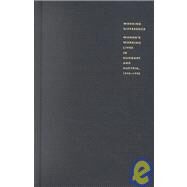- ISBN: 9780822330776 | 0822330776
- Cover: Hardcover
- Copyright: 2/1/2003
Working Difference is one of the first comparative, historical studies of women's professional access to public institutions in a state socialist and a capitalist society. Éva Fodor examines women's inclusion into and exclusion from positions of authority in Austria and Hungary in the latter half of the twentieth century. Until the end of World War II women's lives in the two countries, which were once part of the same empire, followed similar paths, which only began to diverge after the communist takeover in Hungary in the late 1940s. Fodor takes advantage of Austria and Hungary's common history to carefully examine the effects of state socialism and the differing trajectories to social mobility and authority available to women in each country. Fodor brings qualitative and quantitative analyses to bear, combining statistical analyses of survey data, interviews with women managers in both countries, and archival materials including those from the previously classified archives of the Hungarian communist party and transcripts from sessions of the Austrian Parliament. She shows how women's access to power varied in degree and operated through different principles and mechanisms in accordance with the stratification systems of the respective countries. In Hungary women's mobility was curtailed by political means (often involving limited access to communist party membership), while in Austria women's professional advancement was effected by limited access to educational institutions and the labor market. Fodor discusses the legacies of Austria's and Hungary's "gender regimes" following the demise of state socialism and during the process of integration into the European Union.







